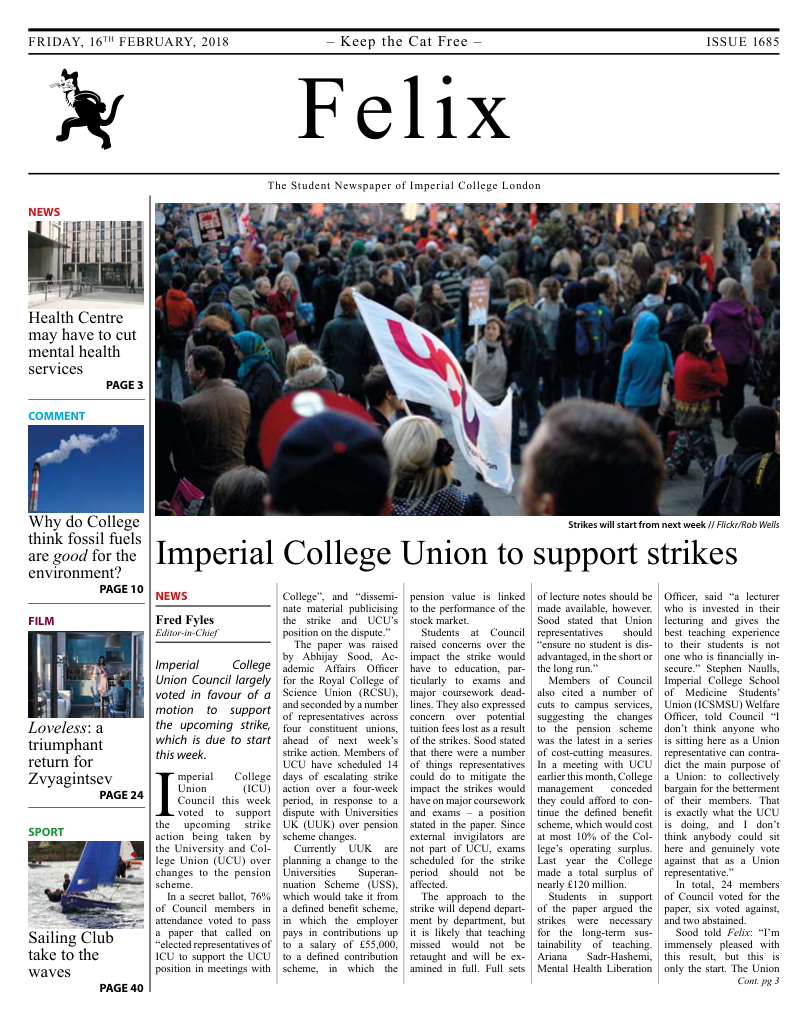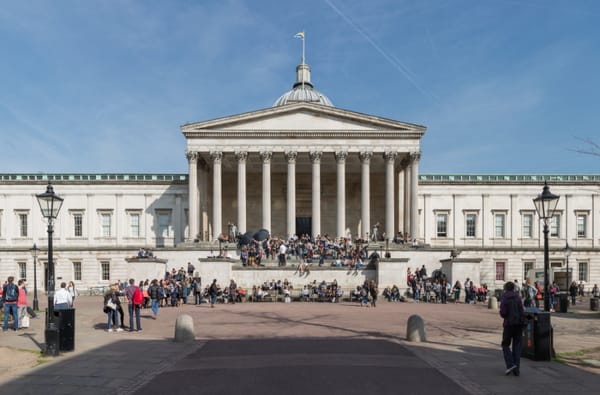Russell Group respond to Office for Students proposals on fines
Russell Group respond to Office for Students proposals about fining universities.

The Russell Group has responded to the Office for Students’ (OfS) proposals to place financial penalties on universities that breach registration conditions.
The Russell Group – a group of 24 universities in the UK, including Imperial College London, who are ‘committed to maintaining the very best research – cited concerns that “the proposed maximum monetary penalty [for breach of conditions] does not represent a proportionate response.”
Later this year, OfS will have the power to punish institutions that breach registration conditions, including student outcomes dipping below an acceptable baseline or non-compliance with statutory regulations.
Under current plans, universities would either pay 2% or 5% of “qualifying income”, or £500,000 – whichever is higher. The Russell Group states that a 2% charge would equate to £5.7 million for their average institution – equal to tuition fees from 615 students. The 5% charge, meanwhile, would equate to £14.3 million – more than the total annual spend on access and participation for the average Russell Group university.
In their response, they argue that such fines could mean “difficult decisions would need to be made about resource allocation with the potential to affect course viability and quality for students.”
“The proposals may 'affect course viability and quality'”
They also raised concerns that fines could affect the net liquidity of higher education institutions. By the end of 2019/20, the average university is predicted to only have enough liquid capital available to run for 81 days.
OfS was formed in January of this year, and will receive its statutory powers in April. As well as financial penalties, it will be able to suspend providers that fail to comply with regulations.
Last December, the Russell Group responded to a number of other proposals from the OfS, saying plans to have universities publish detailed information on staff earning above £100,000 per annum “risk undermining the ability of institutions to compete in an international market”.
High-pay at university has come under increased scrutiny this year, as Vice-Chancellor pay at a number of universities has been questioned. Dame Glynis Breakwell, the vice-chancellor of Bath University, is stepping down at the end of this academic year amid concerns over her pay.
A recent investigation by the University and College Union (UCU) found that nearly half of university vice-chancellors are involved in setting their own pay. Alice Gast, Imperial’s president, is not on her own remuneration committee, but is allowed to attend their meetings.
The OfS came under fire last year, after journalist Toby Young, a free school proponent, was appointed to its board. Young’s appointment was criticised for his lack of experience, and comments he had made previously that were derogatory to women, disabled people, and working class students. He later resigned.










